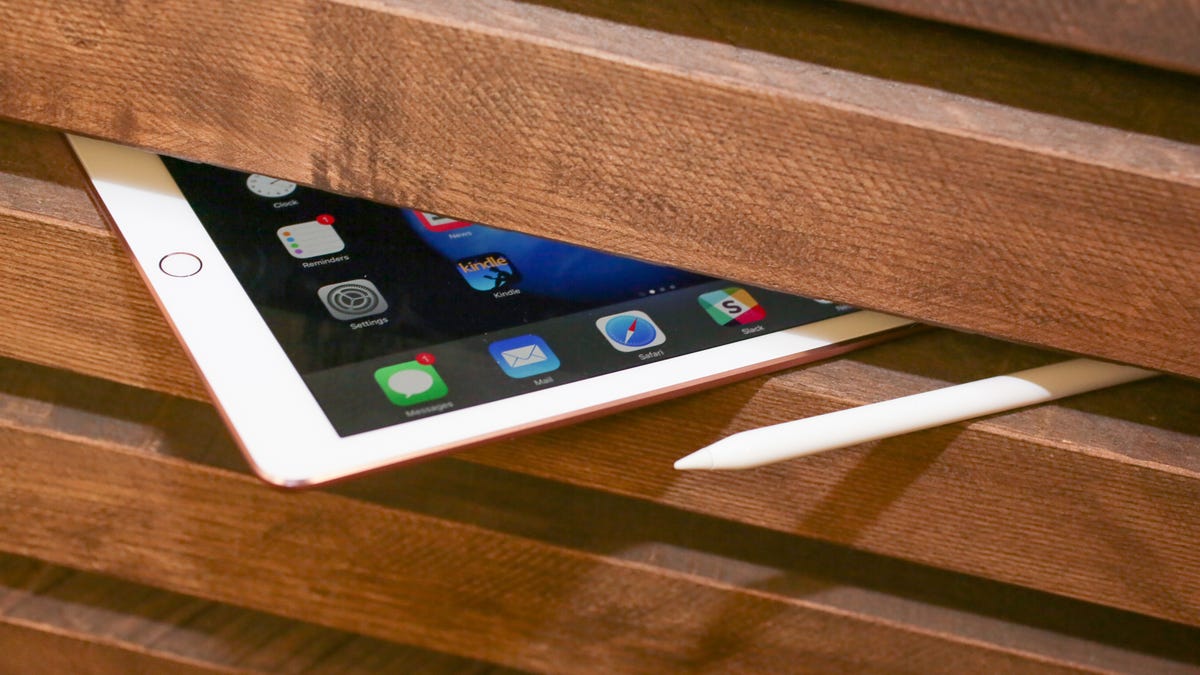Where have all the tablets gone?
Commentary: To say it's been a slow year for tablets would be an understatement. What's the deal?

Tablets are like vinyl records and Tupac, people either think they're dead or alive.
Despite the drought in new models, tablets aren't dead. However, the same can't be said about the hype around them. Even the latest iPad -- one of the most popular tablets -- barely turned any heads when it was released earlier this year.
The lukewarm feeling for tablets is evident in consistently declining sales. This has resulted in manufacturers significantly slowing down their production; in 2014 and 2015 Samsung released a new Android tablet every couple of months, and we've yet to see one in 2016. Similarly, we haven't seen Asus release an Android-based Transformer Pad since 2013.
Remember when everyone thought the tablet was going to replace the laptop? So far they've failed to live up to that expectation.
Samsung's new Galaxy TabPro S, a Windows 10 tablet, is one of the few we've seen this year.
Sure, Windows tablets with snap-on keyboards -- models like Microsoft's own Surface Pro line or Samsung's TabPro S -- have made notable inroads. And 2-in-1 Windows "hybrids" such as Lenovo's superb Yoga line have been popular with shoppers. But that's because they retain that familiar laptop look and feel, albeit with the flexibility of a fliparound keyboard and touchscreen interface.
Though they've improved throughout the years with sexy, slim designs and sharp, vivid screens, tablets aren't selling like hotcakes. That's because they're not supposed to.
Tablets aren't like phones; they're not fetishized by shoppers. A phone is an everyday part of life you take with you everywhere (yes, sadly, even in the bathroom), and upgrading every other year usually results in improved performance or design that makes an incremental difference in your life -- whether that's a waterproof build or removable parts.
I'd like to see a modular tablet, like the LG G5 phone.
It's not the same with tablets. They're usually used as a leisure device at home for reading up on Kanye's latest Twitter rant, binge-watching House of Cards in bed, or checking Facebook, and most people's needs are fulfilled by the model they already own. Getting a new tablet every year (or every other year) is almost like throwing away a toothbrush after using it for a week.
Tablets have more in common with TVs, PCs or gaming consoles than phones. They're an investment you make once every few years, and, ideally, when you upgrade you'll be getting something significantly better than what you had before. (Or you could pick up an affordable Amazon tablet that's good enough for most casual use.) It's up to you when that upgrade happens.
If you're looking, there are tons of great tablets available and some offer killer features, like a built-in projector, crazy-thin keyboard, or stereoscopic cameras. And while it's hard to stand out in the shadow of King iPad, even Apple's tablet line is experiencing big sales drops. Whether its newest pricier Pro models, replete with drawing pencils and keyboard add-ons, will reverse those trends has yet to be seen.
With such dominating competition and declining sales, it makes sense for companies like Samsung to focus less on new tablets and put those resources toward something else, like a VR headset. This doesn't mean it's over, though.
Tablets have a long shelf life -- that's a good thing for consumers. It's resulted in a smaller pool to pick from, but it's not a coincidence that the manufacturers who make the best ones, like Apple, Amazon and Google, are still churning them out -- slowly, but surely.
If the tablet category really wants to justify a second act, manufacturers need to up their game. And that means going after the elephant in the room: the computer. PC or Mac, it doesn't matter. But ultimately, the tablet needs to replace the need for you to run back to the laptop not 80 or 90 percent of the time, but 100 percent of the time.
To its credit, Microsoft, with its Surface line, is getting tantalizingly close. Some future combination of the Surface Pro and Surface Book could be The One. In the meantime, Samsung (that TabPro S), Google (Pixel C) and Apple (iPad Pro) are all making strides, too. But the Big Three operating systems -- Windows, Android, iOS -- are still playing catchup with that one-size-fits-all dream.
Until then, I'll be shuttling between my phone, my laptop -- and my 2-year-old tablet.

